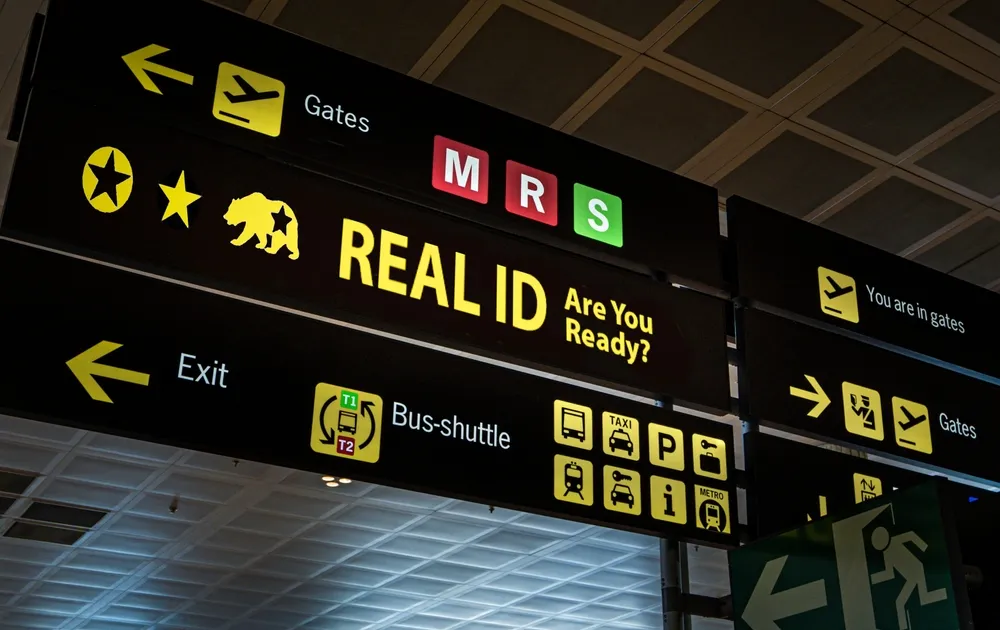After years of getting pushed back, the Real ID deadline is almost here — for real this time. This important change, aimed at strengthening national security, sets strict federal standards for using state-issued identification for travel. Now that the Real ID countdown has begun, it’s crucial to know what to expect when flying in the United States.
 Shutterstock: Ivan Marc
Shutterstock: Ivan MarcWhat Is Real ID?
Created in response to security concerns after September 11, 2001, Real ID sets standards for the issuance of sources of identification. Under the Real ID Act, certain identification rules apply to air travel and entrance into federal facilities. It ensures that identification documents are authentic and issued by authorized sources. It’s a security measure designed to improve national safety and deter fraudulent activities.
What To Know About Real ID
Your standard driver’s license may no longer suffice for boarding domestic flights or entering secure federal sites. The Department of Homeland Security (DHS) requires Real ID-compliant identification for anyone who wants to access federal buildings or military bases. This includes airports where boarding a plane for domestic travel will require a Real ID. Compliance means having a star or other approved symbol on your driver’s license or government-issued ID. As the deadline looms, verify that you’re prepared or consider obtaining an acceptable alternative ID like a passport.
When Does Real ID Go Into Effect?
The Real ID requirement has seen several delays, resulting in confusion. However, this year marks the enforceable deadline. As of May 7, 2025, travelers must present a Real ID-compliant license or acceptable alternative identification to fly commercially. This deadline hopes to provide ample time for citizens to update their identification. The change applies to domestic airline travel and certain federal facilities. Mark your calendars and check your ID to ensure you won’t face travel disruptions.
Preparing for Real ID Requirements
Getting prepared for the Real ID transition requires a few essential steps. First, confirm whether your current identification meets Real ID standards. You can spot a Real ID-compliant card by the star in the upper corner of a state-issued driver’s license — some states may use a different symbol. If your ID lacks this marking, you’ll want to visit your local Department of Motor Vehicles (DMV) to apply for an upgrade. Bring necessary documents, such as proof of identity, Social Security number, and residency verification. It’s wise to plan ahead, as DMV offices could experience delays or longer wait times closer to the deadline.
Implications for Travelers
Travelers need to stay informed about how Real ID will affect their plans. Without a Real ID license or an alternative form of acceptable identification, you might miss your flight. Avoid potential headaches by checking your ID status well before any planned travel. Consider investing in an alternative federal ID like a passport card or passport book. Airlines and TSA agents will enforce these requirements strictly, and ignorance won’t stop security from keeping you grounded. Preparing ahead will make travel smooth and stress-free as these rules go into full effect.
Final Boarding Call for Real ID
The Real ID implementation represents a major shift in travel norms across the U.S. As the deadline approaches, don’t wait until the last minute to take action. Ensuring compliance means smoother travel experiences and less stress during security checks. Keep in mind the intentions behind the Real ID policy: to enhance security and deter fraud. By securing your Real ID or alternative identification, you secure peace of mind for future travels.


